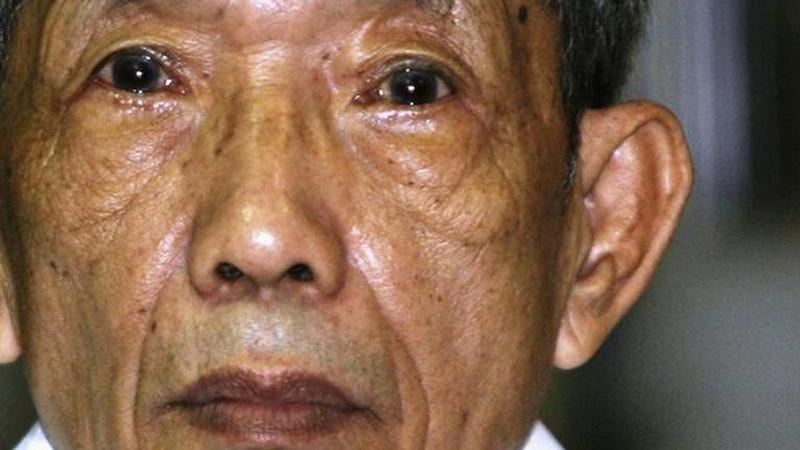Published 11:40 IST, September 2nd 2020
Former head of notorious Khmer Rouge death camp dies
The Khmer Rouge's chief jailer, who admitted overseeing the torture and killings of as many as 16,000 Cambodians while running the communist regime's most notorious prison, has died.

The Khmer Rouge's chief jailer, who admitted overseeing the torture and killings of as many as 16,000 Cambodians while running the communist regime's most notorious prison, has died.
A spokesman for the UN-backed tribunal set up to try the regime's top figures confirmed that Kaing Guek Eav, known by his revolutionary name Duch, died in hospital in Phnom Penh early on Wednesday morning.
He had been serving a life prison term for war crimes and crimes against humanity.
Duch, whose trial took place in 2009, was the first person to face the tribunal, known as the Extraordinary Chambers in the Courts of Cambodia (ECCC).
The Khmer Rouge was a fanatical Maoist movement that seized Cambodia in 1975 following a bloody civil war.
Its brutal, incompetent and paranoid rule is blamed for the deaths of at least 1.7 million people - a quarter of Cambodia's population at the time.
As commander of the top-secret Tuol Sleng prison, code-named S-21, Duch's job was to uncover evidence of conspiracies against the regime.
His trial included his own wrenchingly graphic testimony of how men, women and children were tortured at the prison before being executed.
"The crimes committed by the accused at S-21 are rarely matched in modern history in terms of their combined barbarity, scope, duration, premeditation and callousness," International Co-prosecutor Bill Smith told the trial, at one point.
Unlike other top figures who stood trial, Duch admitted his responsibility for what happened and apologised to his victims and their families.
"I would like to acknowledge my legal responsibility for all the crimes that happened at S-21, especially the torture and execution of people there," he told the court in March 2009.
When a guilty verdict was finally delivered against him in July 2010, he was sentenced to 35 years, shortened to just 19 due to time served.
The judges said they considered the Cold War context of the atrocities and Duch's cooperation and expressions of remorse, however limited.
But outraged survivors feared he could one day walk free.
On appeal, the sentence was lengthened in 2012 to life in prison for his "shocking and heinous" crimes against the Cambodian people.
Duch was an academic before he became a revolutionary.
The former maths teacher joined Pol Pot's movement in 1967, three years before the U.S. started carpet-bombing Cambodia to try to wipe out Northern Vietnamese troops and Viet Cong inside the border.
When Vietnamese forces overthrew the regime in 1979, he slipped away from S-21 and disappeared.
Many assumed he had died.
But in 1999 a British photographer visiting a remote village near the Cambodia-Thai border recognized him, setting in motion a chain of events that eventually led to his arrest.
Duch several times asked for forgiveness, even offering at one point to face a public stoning.
But his surprise request on the final day of the trial to be acquitted and freed left many wondering if his contrition was sincere.
Updated 11:40 IST, September 2nd 2020




